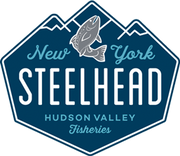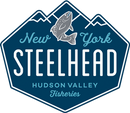A Chef's Guide to the Harlem Valley

Story originally published in Food and Wine
"We buy steelhead trout from Hudson Valley Fisheries. They're in Hudson. It's an incredible system they've built that is a zero waste facility. It tastes great and we feel incredibly proud to serve it."
The pandemic has strained every corner of the restaurant industry. Not only do a record number of workers remain unemployed and unprotected as businesses shutter or adapt to limited staff, but countless suppliers—the bakers, makers, farmers, and artisans that sell largely to restaurants—are swirling in endless pivots. Many have had to quickly devise ways to sell directly to consumers, only to compete with bigger retailers that already have delivery infrastructures in place.
At Troutbeck, a historic estate hotel and restaurant in scenic Amenia, New York, chef Gabe McMackin has remained resolute in his commitment to spotlighting the small farmers and artisans of his community in the Harlem Valley, a vibrant subregion of the Hudson Valley that includes Amenia, Millerton, and Wassaic, among other towns. The award-winning restaurant's minimalist menu features the hyper-local ingredients that have always driven McMackin's cooking, now served to a small number of guests in the property's dining room and private suites. "I hope we tell more of the story of the Harlem River Valley," he told Food & Wine. "We are so close to such other wonderful vibrant communities and makers. There is such a nexus here."
The chef, who permanently closed his acclaimed Brooklyn restaurant The Finch shortly into the pandemic, moved to Woodbury, Connecticut, last March and has continued his deep dive into the foodways of the Harlem Valley. He's hoping that if one good can come out of the COVID-19 era, it will be an entire rethinking of the food industry—one that shifts the model towards sustainability. This starts small.
"I'm hopeful that we are looking at a correction," McMackin said. "People are reconnecting with restaurants and food businesses in their community. Once we come out of this, I am hopeful that people will feel more compelled to keep their dollars in their communities."
The chef has been pleased to see a rallying of support around small farmers and farmers' markets, and he wants this energy to continue in the restaurant world, as well. "I am hopeful that as we rebuild, that we rebuild better—that the people in our communities, maybe they won't be going to that bigger, bolder place, because we will want naturally to stay in smaller spaces," McMackin said.
"If you don't have to buy the great ingredients, if you don't have to treat your staff well, if you don't have to buy the thing that's going to make the job easier for the people, you might not do it," he continued. "None of these things are for charity; this is a business. But we will build a better experience for all of us when we make the right choice. It's about more than just making it profitable. It's about making it feel right."
A big part of that choice is lifting up the suppliers that make restaurants possible, and there are some special ones in the Harlem Valley. McMackin shared a few of the star producers he relies on at Troutbeck, which, coincidentally, makes for a pretty handy food guide to the Harlem Valley (and a few places not too far from there). If you're in the area, or browsing for specialty goods online, don't miss these farmers and artisans.
Wild Hive Farm
The Wild Hive community grain project offers regional grains and fresh, nutrient-dense flours for pick-up and shipping. "Don Lewis is so amazing at growing, collecting, and milling what comes from this part of the world," said McMackin. "He's 15 minutes from our place. I'm thrilled to be able to look for what we need from somebody so close by."
2645 Salt Point Turnpike, Clinton Corners, NY. wildhivefarm.com
Laurel & Ash Farm
McMackin uses the "really special maple syrup our friends are raising" from right down the road. The 50-acre farm also has a maple syrup CSA.
85 Depot Hill Rd, Holmes, NY. laurelandash.farm
Heritage Grain Conservancy
"It's just so special what Eli Rogosa is growing—she was really the one who rescued einkorn from extinction," said McMackin. He uses the special grain in Troutbeck's porridge.
Q Farms in Sharon
"We buy extraordinary chickens from Q Farms. James Quella and his wife, Linda, started Q Farms some years ago changing their careers and are doing things right, from the animals that they're raising to the vegetables they're growing," the chef said. "We can get chestnuts and hazelnuts from them, too." The farm store is open Monday to Sunday from 8 a.m. to 5 p.m.
63 Jackson Hill Rd, Sharon, CT. qfarms.net
Pointy Snout Caviar
"Alex Ducane and Michael Kline both had long careers in different businesses. They got into the caviar business about ten years ago; they're based in Millerton," he said. "They have a relationship with a caviar farm that has allowed them to keep up with demand in a way that many other suppliers and distributers just have not been able to do."
Sharon, CT. pointysnout.com
Harlem Valley Homestead
The working farm has a tulip CSA, as well as an online farm stand.
47 Old Forge Road, Wingdale, NY. harlemvalleyhomestead.com
Hudson Valley Fishery
"We buy steelhead trout from Hudson Valley Fisheries. They're in Hudson. It's an incredible system they've built that is a zero waste facility. It tastes great and we feel incredibly proud to serve it."
4269 U.S. 9, Hudson, NY. hudsonvalleyfisheries.com










